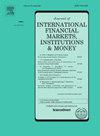Real earnings management and debt choice
IF 6.1
2区 经济学
Q1 BUSINESS, FINANCE
Journal of International Financial Markets Institutions & Money
Pub Date : 2024-11-15
DOI:10.1016/j.intfin.2024.102080
引用次数: 0
Abstract
This study investigates whether real earnings management (RealEM) affects firms’ debt choice. We find that firms with higher RealEM rely more on bank debt than public debt as a source of financing. Our cross-sectional analysis reveals that the RealEM–debt choice association is more significant in the presence of poor corporate governance and heightened financing constraints. We also observe that the connection between RealEM and bank debt is more significant for suspect firms (i.e., firms with a genuine motive for opportunistic earnings management) than their non-suspect counterparts. Additionally, we find that RealEM increases the use of trade credit and short-term debt. Our findings are robust to endogeneity concerns and other issues. Overall, our findings suggest that the impact of information asymmetry issues arising from RealEM is less for bank than for public debtholders.
实际收益管理和债务选择
本研究探讨了实际收益管理(RealEM)是否会影响企业的债务选择。我们发现,真实收益管理程度较高的公司更依赖银行债务而非公共债务作为融资来源。我们的横截面分析表明,在公司治理不善和融资约束增加的情况下,真实收益管理与债务选择之间的关联更为显著。我们还发现,与非可疑公司相比,可疑公司(即真正有机会主义收益管理动机的公司)的真实EM与银行债务之间的关联更为显著。此外,我们还发现 RealEM 增加了贸易信贷和短期债务的使用。我们的研究结果不受内生性问题和其他问题的影响。总体而言,我们的研究结果表明,真实EM 所引发的信息不对称问题对银行债务人的影响要小于对公众债务人的影响。
本文章由计算机程序翻译,如有差异,请以英文原文为准。
求助全文
约1分钟内获得全文
求助全文
来源期刊
CiteScore
6.60
自引率
10.00%
发文量
142
期刊介绍:
International trade, financing and investments, and the related cash and credit transactions, have grown at an extremely rapid pace in recent years. The international monetary system has continued to evolve to accommodate the need for foreign-currency denominated transactions and in the process has provided opportunities for its ongoing observation and study. The purpose of the Journal of International Financial Markets, Institutions & Money is to publish rigorous, original articles dealing with the international aspects of financial markets, institutions and money. Theoretical/conceptual and empirical papers providing meaningful insights into the subject areas will be considered. The following topic areas, although not exhaustive, are representative of the coverage in this Journal. • International financial markets • International securities markets • Foreign exchange markets • Eurocurrency markets • International syndications • Term structures of Eurocurrency rates • Determination of exchange rates • Information, speculation and parity • Forward rates and swaps • International payment mechanisms • International commercial banking; • International investment banking • Central bank intervention • International monetary systems • Balance of payments.

 求助内容:
求助内容: 应助结果提醒方式:
应助结果提醒方式:


